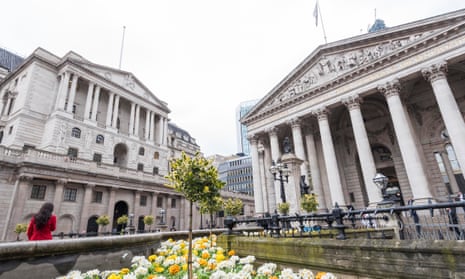The Bank of England has warned that economic growth in Britain could grind to a halt during the second quarter amid mounting risks to the economy from a no-deal Brexit.
Sounding the alarm as its nine-member monetary policy committee (MPC) voted unanimously to leave interest rates on hold at 0.75%, the central bank said the lack of resolution was weighing on growth.
Threadneedle Street slashed its growth forecast for the three months to June to zero, from 0.2%, amid a broader deterioration in the economy since Theresa May extended the Brexit deadline until the autumn.
Warning that downside risks to growth had increased as the threat of crashing out without a deal has risen up the agenda, it said that companies expect uncertainty would persist, while there were no clear signs that firms would increase investments in Britain.
The Bank said the pound had dropped in value on the foreign exchanges, given “the perceived likelihood of a no-deal Brexit has risen”, while mounting tensions over international trade amid the US-China tariff dispute had also slowed the economy.
“Underlying growth in the UK appears to have weakened slightly in the first half of the year relative to 2018,” the MPC said.
Some companies have begun running down stockpiles built up in the run-up to the original Brexit deadline on 29 March – now delayed until the end of October – in a move that is likely to weigh on economic growth in future, the Bank said.
The rush to build up emergency supplies of goods and raw materials had previously helped boost GDP growth to 0.5% in the first quarter. However, goods trade with the EU weakened sharply in April, according to the MPC, in a sign companies were running down stock.
The majority of businesses surveyed by the Bank’s networks of regional agents across the country believe Brexit uncertainty would not be resolved by the end of the year. Only a fifth said they thought there would be clarity.
Should Brexit pass smoothly, the MPC said that an ongoing increase in interest rates would be required at a gradual pace and to a limited extent to maintain its inflation target of 2%.
